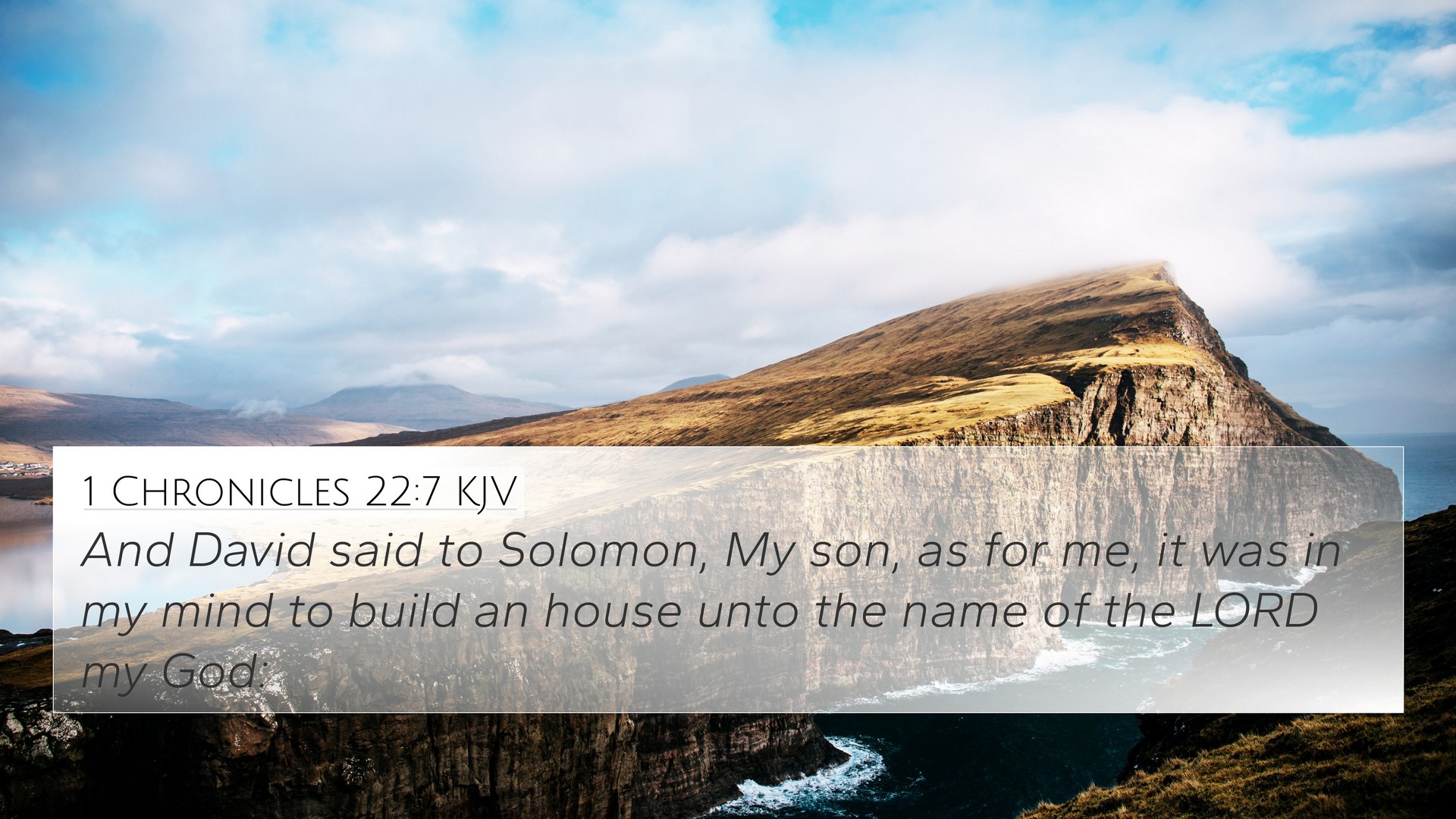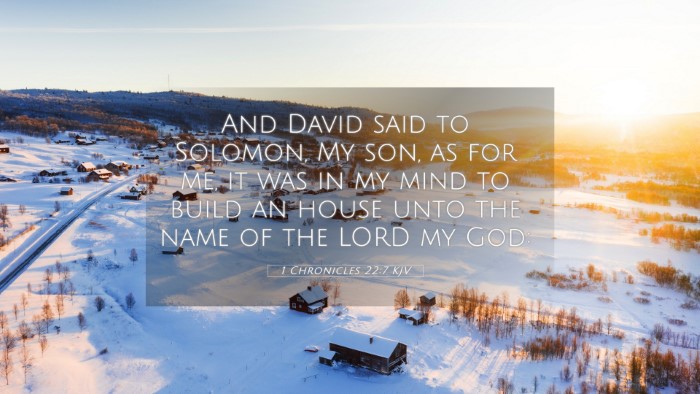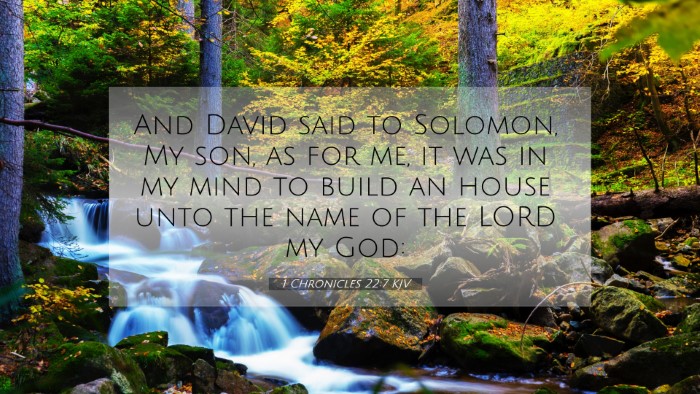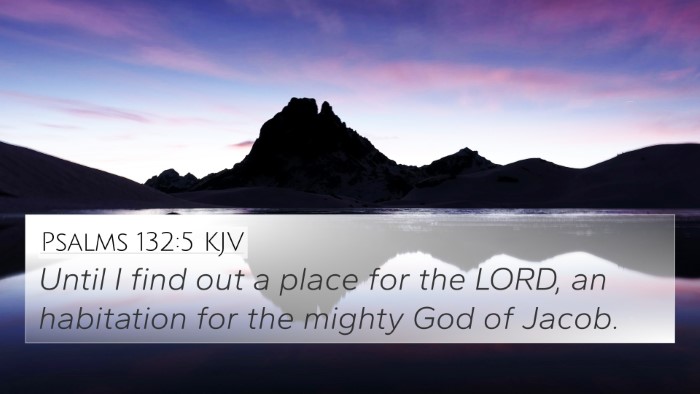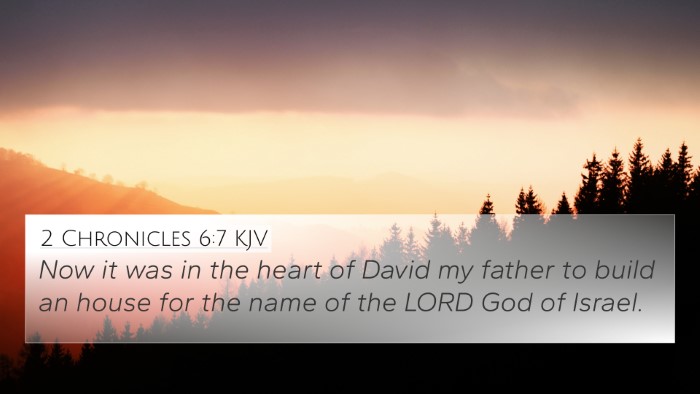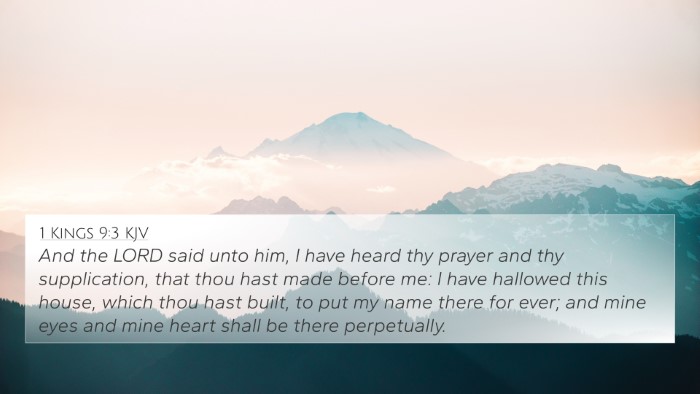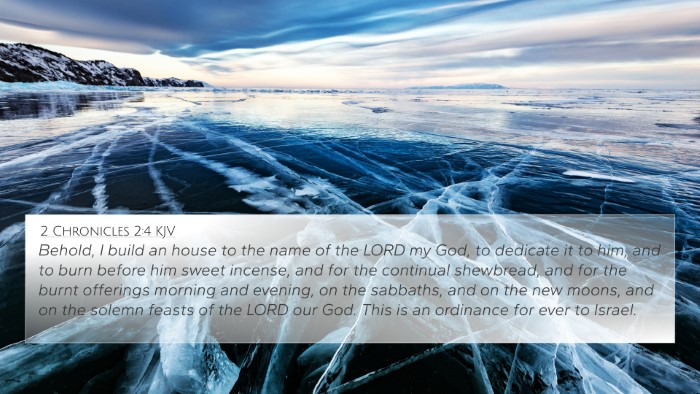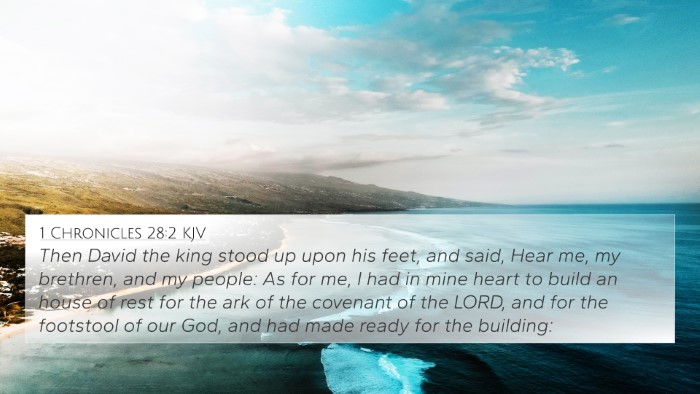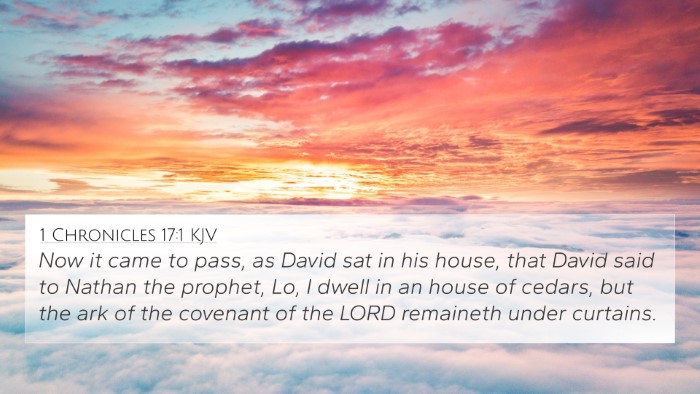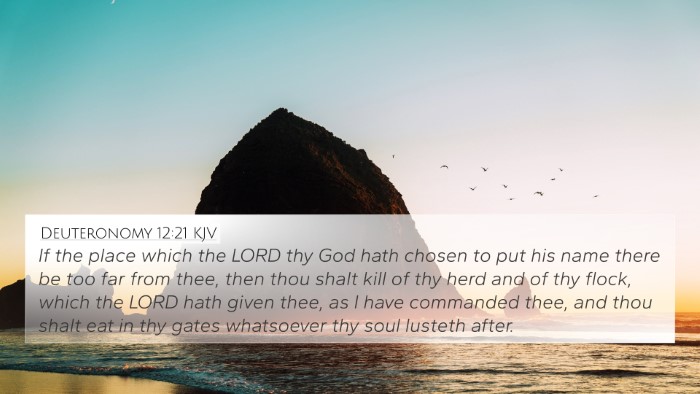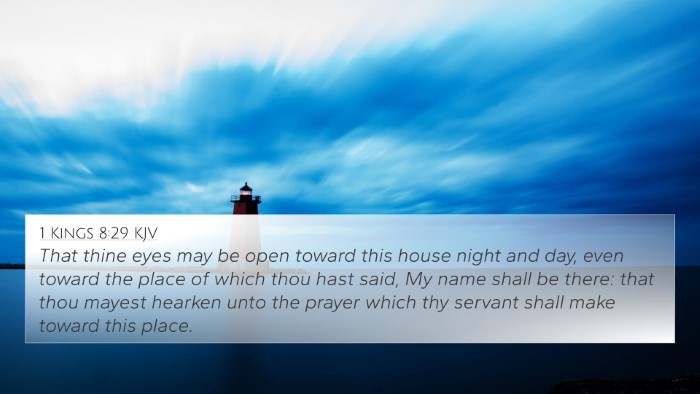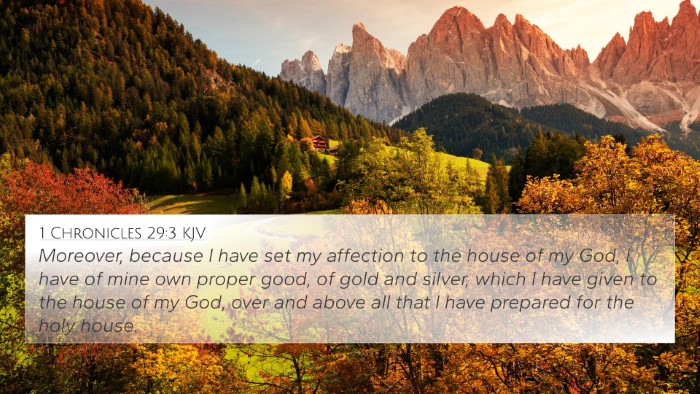Understanding 1 Chronicles 22:7
1 Chronicles 22:7 states: "David said to Solomon, My son, as for me, I had it in my heart to build a house unto the name of the LORD my God." This verse reflects the profound desire of King David to construct a house (temple) for God, which leads to a richer understanding of God's plans and the legacy of worship in Israel.
Context and Significance
This verse is a pivotal moment in the narrative of King David's reign and the establishment of sacred worship in Israel. David expresses his intentions to build a temple, a desire that is significant in biblical history.
Insights from Public Domain Commentaries
-
Matthew Henry's Commentary:
Henry notes that David's desire to build a house for the Lord stems from gratitude and recognition of God's blessings in his life. He emphasizes the importance of having a place for God’s presence among His people and acknowledges that such a noble desire demonstrates a heart seeking to honor God.
-
Albert Barnes' Commentary:
Barnes highlights that David’s plan was divinely inspired, showing that God allows humans to express their intentions in worship. He points out that although David would not build the temple himself, his plans set in motion an important phase in Israel's spiritual heritage. This indicates the value of intentions, even if not directly executed.
-
Adam Clarke's Commentary:
Clarke discusses the profound commitment of King David to the worship of God, describing his reign as a time of establishing a solid framework for religious observance. He notes that David's intention reveals a significant shift from temporary worship to a permanent dwelling for God, contributing to the understanding of God’s desire to dwell among His people.
Bible Cross-References
Several verses in the Bible resonate with the themes present in 1 Chronicles 22:7. Here are some related references:
- 2 Samuel 7:12-13: "When your days are fulfilled and you lie down with your fathers, I will raise up your offspring after you, who shall come from your body, and I will establish his kingdom. He shall build a house for my name, and I will establish the throne of his kingdom forever." This passage reveals God’s promise that Solomon, David's son, would build the temple.
- 1 Kings 6:1: "In the four hundred and eightieth year after the people of Israel came out of the land of Egypt, in the fourth year of Solomon’s reign over Israel, in the month of Ziv, which is the second month, he began to build the house of the LORD." This connects directly to the fulfillment of David's intentions through Solomon.
- Psalm 132:3-5: "Surely I will not go into the chamber of my house, or get into my bed; I will not give sleep to my eyes or slumber to my eyelids, until I find a place for the LORD, a dwelling place for the Mighty One of Jacob." This illustrates the earnest desire for God’s presence that David harbored.
- Acts 7:46: "Who found favor before God and asked to find a dwelling for the God of Jacob." This verse references David's intentions to build a temple, showcasing that the desire for God’s dwelling is honored through history.
- 1 Chronicles 28:2-3: "Then King David rose to his feet and said: 'Hear me, my brethren and my people: I had it in my heart to build a house of rest for the ark of the covenant of the LORD and for the footstool of our God... But God said to me, You shall not build a house for my name.'" This directly indicates God’s response to David’s intentions and sets the context for Solomon's role.
- Hebrews 8:5: "They serve a copy and shadow of the heavenly things. For when Moses was about to erect the tent, he was instructed by God, saying, 'See that you make everything according to the pattern that was shown you on the mountain.'" This reflects the heavenly realities behind the earthly temple David wished to build.
- Isaiah 66:1-2: "Thus says the LORD: 'Heaven is my throne, and the earth is my footstool; what is the house that you would build for me, and what is the place of my rest? All these things my hand has made...'" This brings a greater understanding of God’s grandeur beyond physical structures.
Theological Reflections
In this verse, we see a representation of human desire to commune with God manifested through acts of worship and the creation of sacred spaces. This desire to honor God is echoed throughout the Scriptures, emphasizing the importance of worship in the life of God’s people.
Connections to New Testament Themes
1 Chronicles 22:7 also has parallels in the New Testament, connecting themes of worship and honor towards God through Jesus Christ. Believers are called to be living temples (1 Corinthians 3:16), fulfilling God's desire to dwell among His people, just as David intended for the temple of his time.
Conclusion
Through understanding 1 Chronicles 22:7, we gain insights not only into David’s heart for God but also into the deeper theological implications regarding worship, sacrifice, and God’s presence. The act of building a temple can be seen as a foreshadowing of Christ’s ultimate sacrificial work and the believers' ongoing relationship with God today. This verse serves as a reminder of how the desire to honor God transcends generations and is pivotal in understanding God's plan throughout the Scriptures.
Final Thoughts
As we explore the connections between this verse and others in the Bible, we realize the rich tapestry of inter-Biblical dialogue that illustrates God’s unwavering desire for communion with His people. Whether through cross-referencing, thematic studies, or personal reflection, the heart of the believer should seek to understand and pursue God, paralleling the earnest desire expressed by David.
